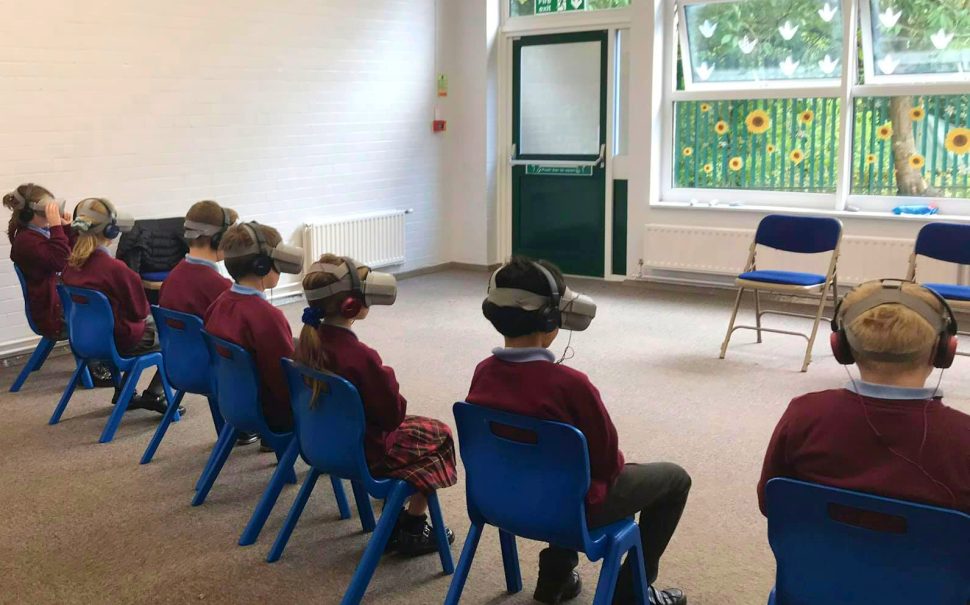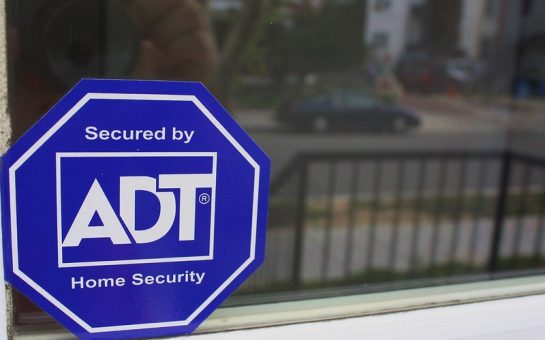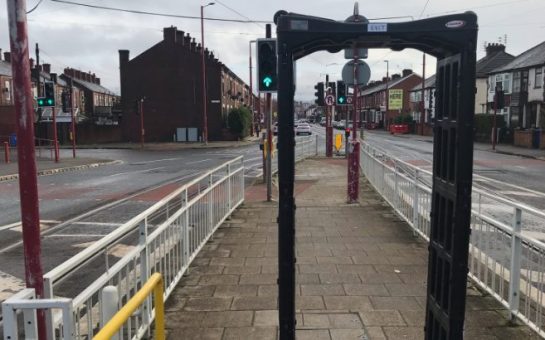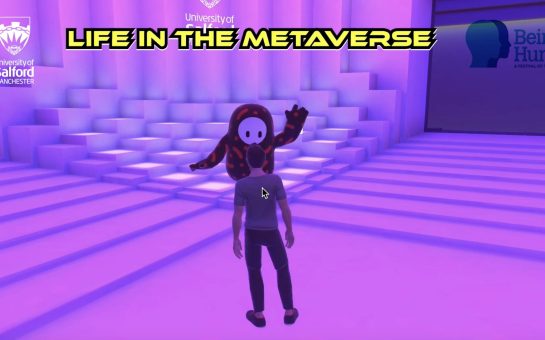A virtual reality initiative is transforming attitudes towards knife crime among schoolchildren in Manchester.
Creative arts company Round Midnight has developed a modern solution for a very modern problem – tackling the violence generated by social media disputes.
Greater Manchester has one of the highest levels of knife crime in the country, and carrying knives is increasingly common among school children throughout the region.
According to the Greater Manchester Police, last year 3,197 children were victims of knife-related crimes in Manchester.
In response to this alarming trend, Round Midnight developed “Virtual Decisions: KNIVES”, to help students explore the factors that can lead to knife violence in a realistic, but ultimately safe, setting.
Stuart Lane, Co-founder of Round Midnight, explained: “In the age of TikTok, we wanted to embrace young people’s appetite for creating and engaging with digital content.
“We chose virtual reality as a new tool to bring difficult subjects to life for students in a user-led experience.”
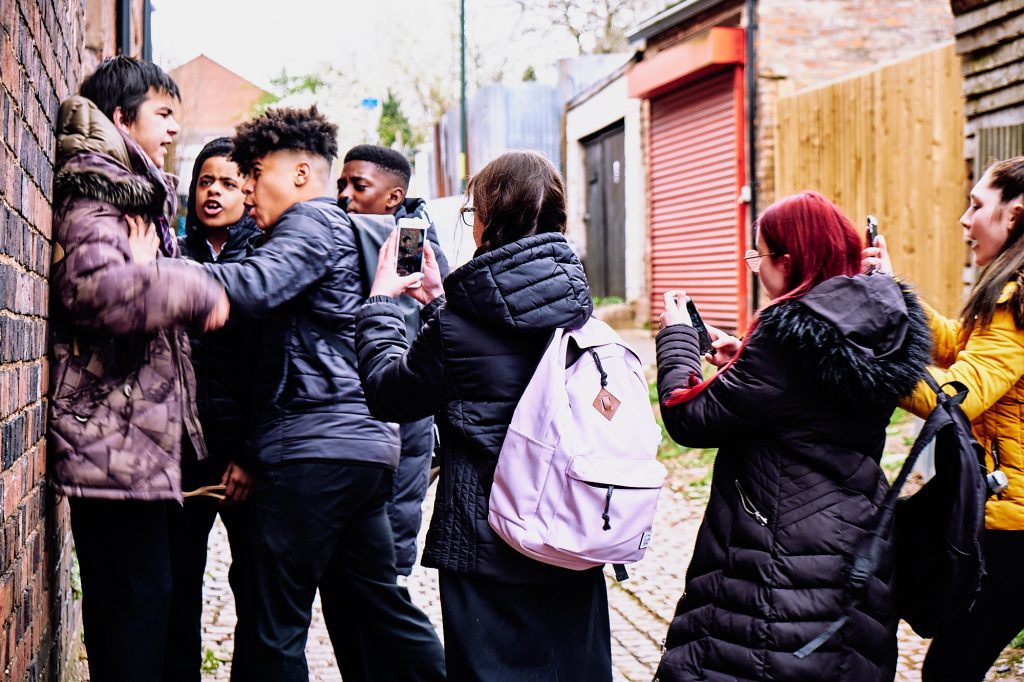
During an 11-minute film, students over the age of 10 are immersed in a virtual scenario centred around knife crime.
Children are invited to make decisions in response to the scenes that they witness, which in turn shapes the course of their VR experience.
This flexibility allows students to trial different approaches to peer pressure and de-escalation, and witness the consequences of their decisions, privately and without judgement.
A class-wide discussion, followed by a 12-week curriculum, encourages students to explore and consolidate the lessons that they encountered during their VR experience.
The initiative has already seen impressive results throughout the city. A pilot project with 31 schools across Greater Manchester revealed that harnessing virtual reality impacted greatly on awareness and behaviours around knife-related violence.
Of the pupils who participated, 92% said that the VR experience had made them think about the consequences of knife crime.
The programme is also credited as contributing towards the 15% reduction in knife crime across Manchester over the past year.
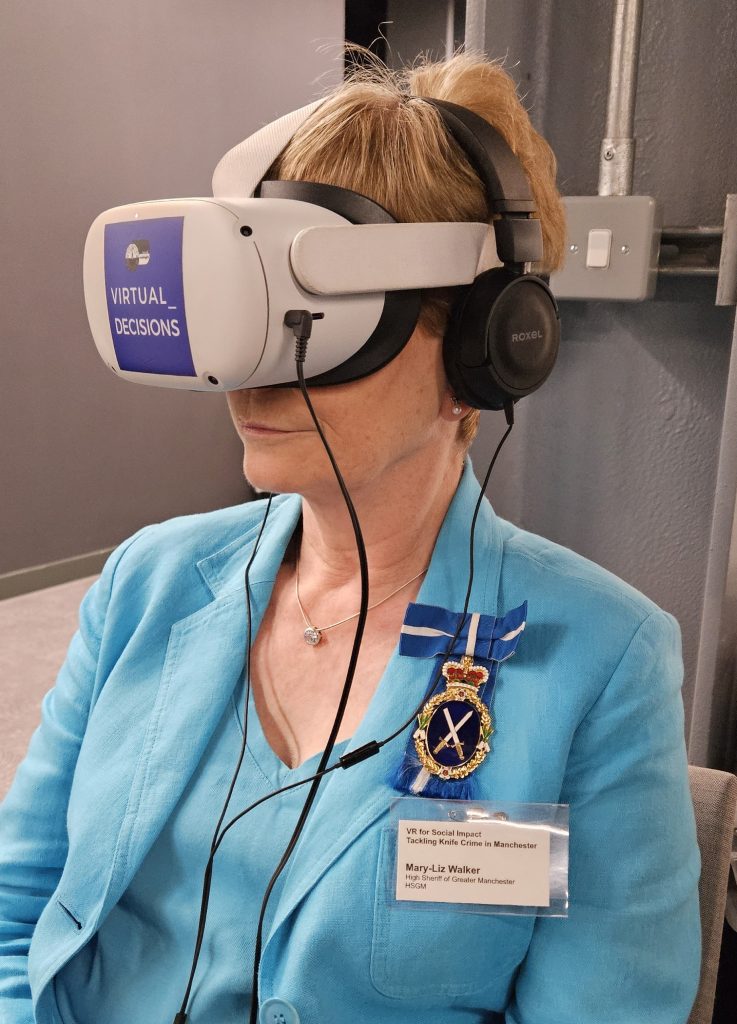
Mary-Liz Walker, Deputy Lieutenant of Greater Manchester, said: “The beauty of using virtual reality as a knife crime prevention tool is that by engaging and challenging students, it educates young people by stealth.”
Sara Lawrenson, Headteacher at Ince CE Primary School where “Virtual Decisions: KNIVES” has been introduced, added: “I hadn’t seen a programme before that was so cutting-edge and relevant to young people.
“This programme is hugely powerful and its legacy is going to be a community transformed. We’ve already seen an attitude change among our students, and the future is just going to be mind-blowing.”
Youth Justice Services across Greater Manchester are now exploring how the virtual reality programme can engage and support those most at risk of knife crime.
Paul Brearley, Chairman of the Greater Manchester Magistrates Association, said: “The feedback from teachers and students shows just how effective virtual reality technology is at communicating the devastating consequences of carrying knives. We have got schools now who are clamouring to have access to the VR programme.
“The urgency of action and the demand from communities is clear: what we need now is meaningful action from those in power to roll out this technology and save lives.”
Feature image: Manchester children navigate immersive knife crime scenarios in the classroom
